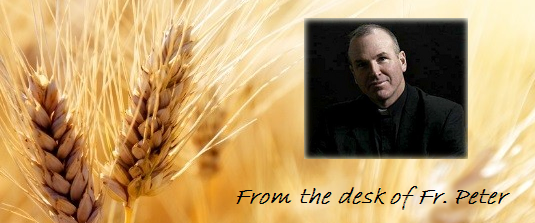Peace and grace to you!
Today’s readings remind me of Flannery O’Connor’s stories “Revelation” or “A Good Man is Hard to Find.” I also recall Harper Lee’s novel “To Kill a Mocking Bird.”
The principles that Jesus is teaching today inspired these authors to describe situations that depict great injustices by societies, individuals and even whole classes of race toward other people.
We might label this kind of behavior as “Log-in-the-eye-disease” or “Cancel-culture.”
Jesus is asking us to be honest with ourselves about the way we treat others. He is saying that frequently we quickly point out the faults and failings of others while overlooking our own greater faults and failings. Darkness and hardness of heart are the root of viewing people wrongfully and this results in wrongful judgement. Grudges and long-standing prejudices close out the light of the Gospel. Jesus names it as evil and not capable of good fruit. That means no happiness, no peace, no friends, no joy and no glorifying God. If we, who are baptized into Christ, are suffering from log-in-the-eye syndrome, we are hypocrites and merit a hypocrite’s reward.
The remedy? Listen to Jesus and follow him. It helps to first consider that we don’t completely know another person’s story. We must be able to identify bad behavior but that is a long way from condemning a person. Will Rogers said: “Good judgement comes from experience, and a lot of that comes from bad judgement.” If we begin from a perspective of understanding that all of us need room to make mistakes, that all of us need God’s mercy, we avoid being hypocrites, we don’t cancel other people. We become better friends of God and our neighbor. Blessings to you! +++ Fr. Peter

